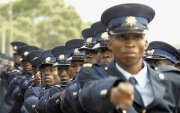
|
 Pakistan: Hold Musharraf Accountable for Abuses Pakistan: Hold Musharraf Accountable for Abuses
(New York) – The Pakistani government should hold the country’s former military ruler Pervez Musharraf accountable for human rights abuses when he returns to Pakistan, Human Rights Watch said today. Musharraf announced that he intends to return on March 24, 2013, after over four years in exile to be a candidate in parliamentary elections scheduled for May.
Legal proceedings are pending against Musharraf in several human rights cases. In November 2011, Musharraf was charged with involvement in the killing of Akbar Bugti, a Baloch nationalist leader who died under unclear circumstances while hiding in a cave in August 2006, after a long standoff with the Pakistani military. In February 2011, Musharraf was declared an absconder after a court in Rawalpindi accepted the interim charge-sheet from Pakistan’s Federal Investigation Agency, which named the former president as one of the accused in the assassination of former prime minister Benazir Bhutto. Musharraf has also been charged with the illegal removal from office and confinement of much of the country’s judiciary, including the serving chief justice of the Supreme Court, from November 2007 to March 2008.
“Musharraf should not be allowed to elude the serious legal proceedings against him on his return to Pakistan,” said Ali Dayan Hasan, Pakistan director. “Only by ensuring that Musharraf faces the well-documented outstanding charges against him can Pakistan put an end to the military’s impunity for abuses.”
Musharraf has the distinction of having suspended constitutional rule twice during his time in office. After declaring a state of emergency in November 2007, he began a violent crackdown and ordered the detention of some 10,000 political opponents –including most of the country’s Supreme Court judges. The fired chief justice, Iftikhar Mohammad Chaudhry, five other judges, and several leading lawyers remained under house arrest and were released only when the opposition Pakistan Peoples’ Party formed a government and took over the prime minister’s office in March 2008.
“Given the personal suffering many judges endured at Musharraf’s hands, it will be a real test for Pakistan’s judiciary, especially the Supreme Court chief justice, to ensure that prosecutions are impartial,” Hasan said. “But this is a test they must face and pass if Pakistan is to send a clear message that it will not allow abusive military leaders to escape accountability.”
Under Musharraf’s watch, the Pakistani military and its intelligence agencies committed widespread human rights violations, including the enforced disappearances of thousands of political opponents, particularly from Balochistan province, and tortured hundreds of Pakistani terrorism suspects. Political opponents including high-profile opposition politicians were exiled, jailed, tortured, and in some instances murdered. Hundreds of “disappeared,” especially from insurgency-hit Balochistan, remain unaccounted for and are feared dead.
“Throughout his years in office, Musharraf maintained that he was fully aware of the behavior of security forces in Balochistan and that they had done no wrong,” Hasan said. “His role in the widespread abuses in Balochistan, including ‘disappearances’ during his rule, needs to be investigated and appropriately prosecuted.”
Musharraf persistently undermined the right to free expression and forcibly censored the media during his years in power. During the emergency, he shut down over 30 television channels and passed decrees muzzling the media. Security forces carried out brazen attacks on media offices. Throughout Musharraf’s rule, security forces repeatedly coerced, abducted, arbitrarily detained, beat, and tortured journalists working for both local and international media. Several journalists died in alleged custody of the security forces.
Pakistan’s elected parliament has rolled back most of Musharraf’s unlawful decrees and reversed virtually all his self-empowering constitutional measures. However, there has been little progress in holding accountable Musharraf and others in his government responsible for egregious human rights abuses including killings, torture, and enforced disappearances.
Musharraf seized power in a 1999 military coup and ruled Pakistan until his ouster in 2008. His rule was marred by widespread and serious human rights violations. During his time in power Musharraf exiled opposition leaders, including Bhutto and former prime minister, Nawaz Sharif. When Sharif tried to return to Pakistan in September 2007, Musharraf forcibly exiled him back to Saudi Arabia in violation of international law and Pakistan’s constitution and in defiance of a direct ruling by Pakistan’s Supreme Court.
However, Bhutto successfully returned in October 2007 and Sharif in November in the run up to elections. Musharraf was forced to resign in the wake of Bhutto’s assassination in December 2007 and subsequent elections that brought her Pakistan People’s Party to power. Since fleeing Pakistan in 2008, Musharraf has formed his own political party, the All Pakistan Muslim League, considered electorally and politically marginal by most independent analysts.
“It is fortunate for General Musharraf that Pakistan is a democracy today that will neither force him back into exile nor prevent him from participating in the political process as Musharraf did to his opponents,” Hasan said. “But it is the government’s responsibility to ensure that Musharraf is fully investigated and fairly prosecuted for abuses such as torture and disappearances that were widespread under his rule.”
(2013-03-24/hrw )
|





